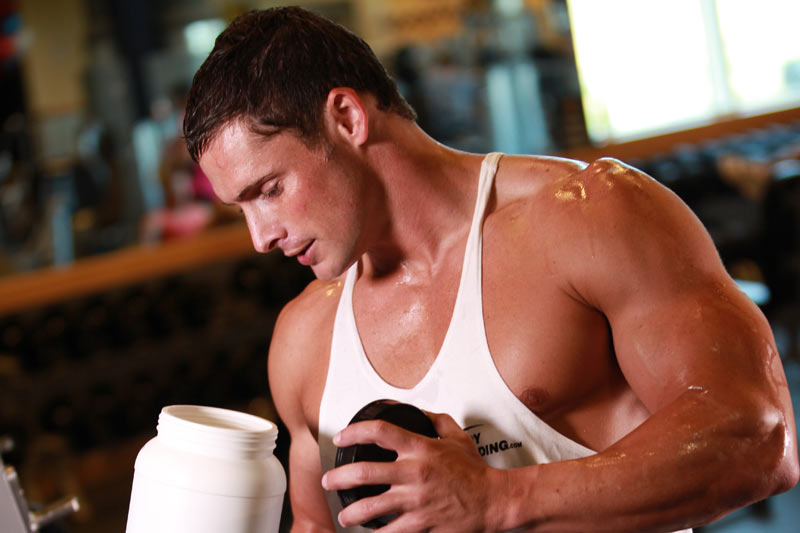Step into any gym, especially the weight room, and you’re likely to see a scene dominated by men. Online resources are heavily geared toward men as well, with dozens of large sites, forums, and stores focused on providing men with what they need to succeed in the gym. What about the other half though? Should women be relegated to slow-paced elliptical workouts and measly salads to achieve fitness goals?
No, absolutely not! Women can benefit from weight training just as much as men. Sure, you may not want to look like Arnold Schwarzenegger when you walk out of the gym (and your natural biology would make sure this change doesn’t happen), but who doesn’t want to be stronger, leaner, and more toned?
So suppose you’re already lifting weights or ready to make the jump, you will want to make sure you are getting the most out of your time in the gym. Pre-workout supplements can do just that. While they’re often associated with muscle-bound guys screaming during squats, pre-workout supplements can offer many benefits to women.
Benefits of Pre-Workout Supplementation
For a long time, supplementation was viewed from a post-workout perspective. Empty the fuel tank, refill the fuel tank. Over recent years, however, it’s become increasingly obvious that by filling your tank with the right kind of fuel before you workout, you can make sure the right nutrients are ready to go right when you need them.
Pre-workout supplements can help you maximize:
*Strength – Any time you workout, you have to overload your muscles to get results. Pre-workout supplements can help you lift more weight and for a longer duration while training and ensure your muscles have the energy to perform.
*Recovery – DOMS (delayed onset muscle soreness) can be a thorn in the side of any athlete. The right supplements can reduce muscle soreness so you’ll be ready for the next session faster.
*Fat Loss – By taking supplements that help your body use its own fat as fuel, you can improve body composition by burning fat while you build muscle. Lean muscle is also referred to as “metabolic currency” meaning the more lean muscle you have, the better you are at burning fat!
Which Supplements Should I Take?
Now that you’re well aware of the benefits of pre-workout supplementation, you’re probably wondering which supplements you should be taking and you may be a little confused. This confusion is understandable as there are many effective pre-workout supplements on the market. Fear not! Below are the essentials of pre-workout supplements for women. These will help you achieve the benefits listed above and get the most out of your gym time.
Magnesium Creatine Chelate
Creatine is one of the most widely-used supplements and a staple in many athlete’s stacks. Creatine helps support performance while training and improved recovery post-workout. There is a downside to some forms of creatine, however. Some users report bloating when taking basic forms of creatine, mainly creatine monohydrate. So, what’s the best creatine for women that don’t want to walk around feeling bloated?
Magnesium creatine chelate is a relatively new form of creatine that helps you get performance and recovery benefits of creatine without feeling like you swallowed a balloon. One study even showed that magnesium creatine chelate was 6-8% more effective than creatine monohydrate alone. Higher performance with no bloating worries make this the best pre-workout creatine for women.
Whey Protein
As you exercise, muscle tissue is broken down and then repaired afterward by building blocks of protein called amino acids. Whey protein, another staple in the supplement world, helps repair muscles faster by delivering amino acids to muscles quickly. When you repair muscles quicker two main things happen. First, you experience less soreness so you’re ready to get back in the gym faster. Second, and perhaps the more important of the two, you build muscle and see results faster. Whey protein is normally sold in powdered form and in a variety of flavors so you can mix it with other supplements in a pre-workout shake.
Citrulline Malate
Citrulline malate is a complementary supplement to magnesium creatine chelate. By reducing muscle fatigue and improving strength, citrulline malate makes you more efficient in the gym and helps you work harder. Citrulline malate works in two main ways. First, it increases blood flow to the muscles, removing toxins, and delivering nutrients. Second, it increases ATP energy in muscles, giving you that extra boost to work harder. The icing on the cake with citrulline malate is the recovery benefit. Research shows that citrulline malate not only improves performance during a workout, but can reduce soreness by up to 50%!
Nitric Oxide
Nitric oxide (sometimes shown as the acronym NO) is a fantastic supplement with multiple benefits. First, it increases blood flow to the muscles during workout. It delivers more nutrients and oxygen to the muscles, enabling you to workout harder and longer in both strength and endurance exercises. The increased flow of nutrients to muscles also boosts recovery. Additionally, it helps the body use existing energy more efficiently and improve lypolysis. Meaning, glucose in your bloodstream and stored fat can be broken down and used even faster as fuel during a workout!
There you have it, four high-quality pre-workout supplements that come highly recommended for women! As you can tell, these all have incredibly synergistic effects. Whether it is whey protein providing amino acids or nitric oxide moving them to muscles while burning off fat for energy, these supplements are sure to help you get the results you want in the gym.




